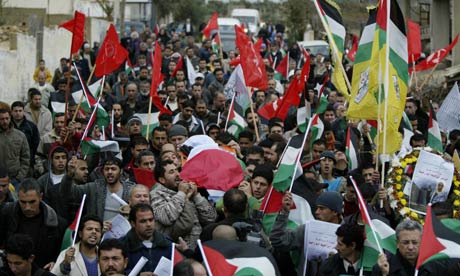1) Ahead of the upcoming presidential election in Iran, Potkin Azarmehr provides a useful guide to the electoral system in that country.
“Iran’s next presidential elections are scheduled to be held on 19th May. Iranians are given a choice of six candidates to choose from for the next president of the Islamic Republic of Iran. The question I am often asked these days is ‘who will be the next president of Iran? Will Rouhani have a second term or will it be one of the other five candidates?’
Islamic Republic of Iran is a unique system of governance with no precedence in history prior to 1979. It is the first time the Shia clerics experience running the government and there is currently no other similar form of governing a country anywhere else in the world.
It is therefore important to understand how this unique system of governance works and not to assume this is a presidential elections similar to what takes place elsewhere.”
2) Jonathan Spyer reports on his extraordinary visit to Syria.
“I should explain first of all how I came to be in Damascus. I have been writing about Syria now for over a decade. I have visited the country numerous times since the outbreak of its civil war in mid-2011. My visits, though, were always to the areas controlled by the Sunni Arab rebels or the Kurdish separatist forces. This was a notable gap in my coverage. I wanted to remedy it.
The Assad regime makes it hard for journalists to acquire visas. The authorities are keen consumers of media, and keep track of the names of reporters who have spent time among their enemies. The number of journalists who have managed to report from both the government and rebel sides is very small. I had tried on a number of occasions to acquire a visa, but made little progress.
Finally, a colleague suggested the idea of joining a delegation of foreign supporters of the regime. With the war going its way since late 2015, the Syrian government has begun to cautiously open up to visitors. But like other authoritarian regimes, it prefers to welcome these in groups, and under careful supervision.
I made contact with the organizers of one of these delegations. The process was surprisingly straightforward.”
3) At the Tablet, Tony Badran takes a look at the current state of Lebanese politics.
“A high-level delegation of Lebanese politicians and bankers reportedly will visit Washington later this month to try and convince Congress to soften impending sanctions legislation designed to squeeze the Iranian proxy, Hezbollah. Already, there have been visitors from Lebanon in recent weeks for this purpose, and there’s been speculation in Lebanese media that prime minister Saad Hariri, who has expressed his hope to “change” the legislation, might himself come to town to make the case for going easy on Lebanon.
Generally speaking, the function of Hariri and what is known as “the Lebanese government” in the power configuration in Lebanon is confined to this sort of activity, which could be summarized as running interference for and mopping up after Hezbollah, the real authority in the country. It is principally for this reason, among others, that Hariri’s erstwhile patrons in Saudi Arabia effectively have washed their hands of Lebanon, and pulled a grant they had pledged to the Lebanese Armed Forces. Why waste money on an Iranian satrapy?
Hariri is stuck. In order to return as prime minister, he had to sign on to Hezbollah’s terms. This has meant endorsing Hezbollah’s ally, Michel Aoun, for president, in order to form a new government. And the new government was stacked with Hezbollah allies in key ministries.”
4) Writing at Ynet, Ben Dror Yemini gives his view of the Palestinian prisoners’ hunger strike and its initiator.
“We want peace. We fight for peace. But in the meantime we must remember that we are in a state of war. Not one war, but two wars. One is taking place on the battlefield. Hamas drags us there every few years. This war is being waged on a lower key, both through the knifing and stone-throwing terror attacks and through different other measures targeting Israel nonstop.
The second war is a war on the collective consciousness. A war of demonization. A war that seeks to present Israel as a monster. This war has had quite a lot of achievements.
The jailed terrorists, from Fatah and Hamas, have become full partners in both wars. Some of them try to launch and plan terror attacks from prison. Others try to present themselves as martyrs fighting for “an end to the occupation” or for “liberation.” Every other prisoner tries to present himself as a freedom fighter, and every other prisoner is actually Nelson Mandela. It’s true that they murdered civilians and babies and women and elderly people. And it’s true that when they say “an end to the occupation,” they are referring to Tel Aviv as well. And it’s true that their liberation is sort of like the Islamic State is liberating Iraq and Hamas is liberating Gaza. But in the war on the collective consciousness, they are winning.”




